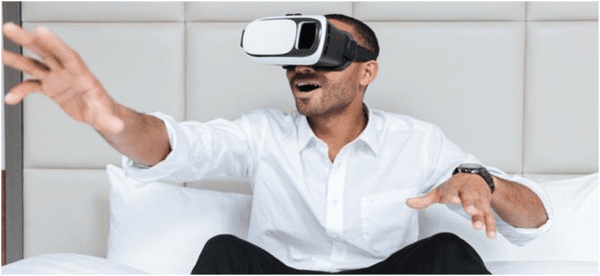In 1608, the Dutch eyeglass maker Hans Lipperhey was the first person to patent the telescope. It had up to 3x magnification. In the 400+ years since then, great minds ranging from Galileo to Carl Steinheil have improved on the original design. Today, we have the Hubble space telescope beaming back images of galaxies millions of miles away.
Telescopes aren’t the only area where humans have made great advances. Fields like communication, transportation, and agriculture have been transformed. You can wake up in New York, have breakfast in Atlanta, and dinner in Los Angeles. That wasn’t possible just 100 years ago. The march of technology has affected almost every industry so it’s natural for people to ask when we’ll be able to buy houses online. The answer to that question isn’t clear cut because buying a property is complex. This article will take a closer look at the factors involved and when we may be ready to buy homes online.

Buying property is an emotional experience
Think about your childhood home. It doesn’t matter if it was an apartment, ranch, or semi-detached home in the suburbs. You remember more than just the room you went to sleep in. You remember the neighborhood, the people, the activities, your favorite spaces, and everything in between. There are positive and negative memories and they stick with you for a long time.
Purchasing or selling a home isn’t something that can be rushed into. First, it’s an expensive decision in which a mistake can cost you much more than the other purchases and may affect you for years to come. Many people will argue that huge transactions (such as buying a car) are already done online but few transactions are as complex as acquiring or selling a property. Most products have warranties, return policies, refunds, etc. You can’t just “return” a house.
For first time home buyers, buying a home means more than just the home itself. It represents their personal development, financial success, and growth as an independent adult. It should be a decision they can be proud of for years to come. The process of visiting the property, inspecting it, touring the
There’s more work needed
Buying a home is a fundamentally complicated process. There are many moving parts such as seller agents, buyer agents, mortgage approvals, appraisals, and more. In addition, buyers need to walk through potential properties in order to fully get a sense of the home and its condition.
In order for this process to work online, artificial intelligence (AI) algorithms for estimating the property price need to improve significantly. Of course, this process won’t ever be 100% accurate but the margin of error should reach below 0.5%. Virtual reality (VR) walkthroughs would also have to be so comprehensive that people will be able to open cupboards, peer under items, and interact with objects in the virtual home. Individuals would have to be able to get enough information to decide whether a house was worth visiting in person (or buying) from the comfort of their home.
Many of these advances encroach on the domain of realtors and finding one would no longer be a word of mouth process. Instead, smart real estate platforms will aggregate real estate agent profiles so their customer reviews, transaction history, areas of expertise, and more will be available online for clients to search through and vet. The best agents will rise to the top while the rest fall to the wayside.
All these advances, taken together, may lead to agents losing much of their purpose unless they’re able to adapt to the changing circumstances. The emphasis will no longer be on finding and appraising properties for their clients. Instead, it may shift to facilitating deals and providing value-added services.
The simple conclusion
It’s unlikely that property will be bought online within the next 10 – 15 years. The technology is too immature and public sentiment is not yet compatible. It would need for greater penetration of related technologies such as for VR tours to be commonplace. A more reasonable estimate for buying homes online is the year 2050 or more. What we may see in the next decade is people buying pre-construction houses online.
 Gearfuse Technology, Science, Culture & More
Gearfuse Technology, Science, Culture & More

